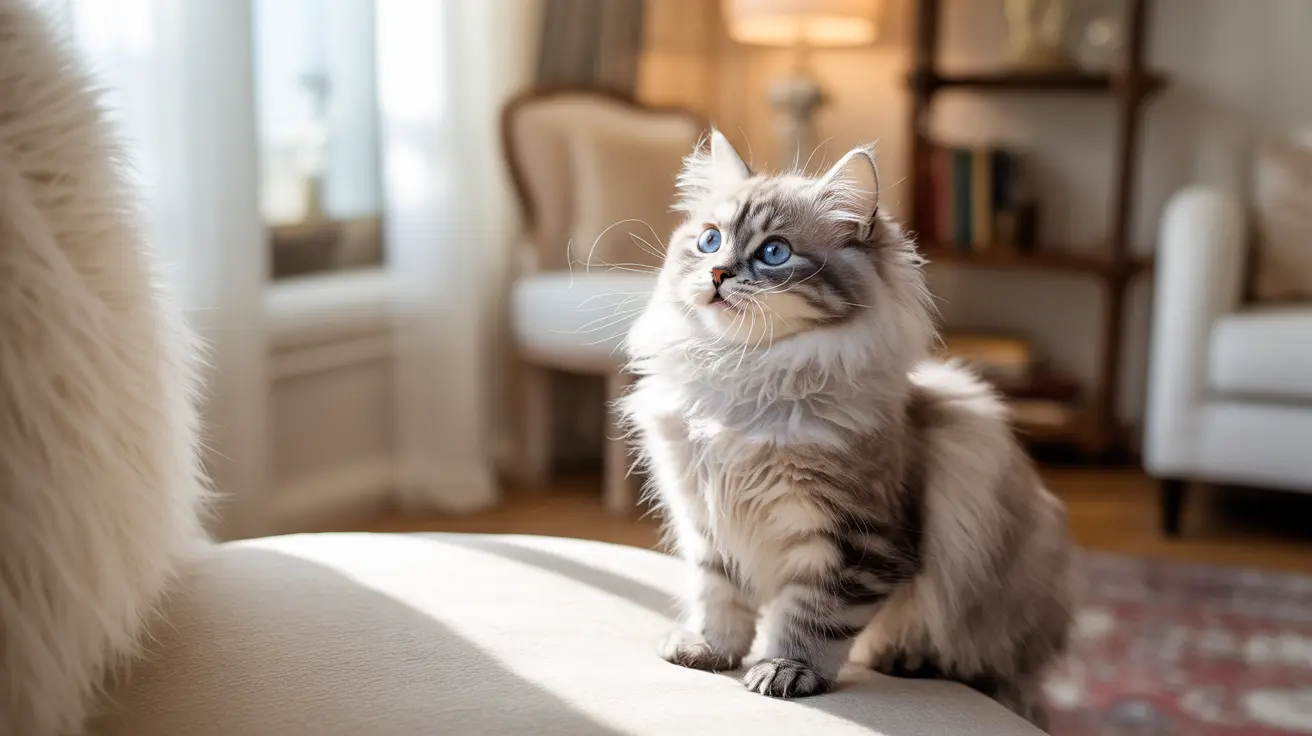Understanding Age-Related Changes in Cat Communication
Senior cats may become more vocal due to various physical and cognitive changes that naturally occur with aging. These changes can affect how they interact with their environment and communicate their needs to their caregivers.
Physical deterioration, including declining vision and hearing, often leads to increased vocalization as cats attempt to navigate their surroundings and maintain contact with their human family members.
Medical Conditions That Cause Excessive Meowing
Common Physical Health Issues
Several medical conditions common in elderly cats can trigger increased vocalization:
- Hyperthyroidism
- Chronic kidney disease
- Arthritis and joint pain
- High blood pressure
- Urinary tract infections
Cognitive Decline and Mental Health
Feline cognitive dysfunction syndrome (CDS), similar to dementia in humans, affects many senior cats. This condition can cause confusion, anxiety, and excessive vocalization, particularly during nighttime hours.
Environmental and Behavioral Factors
Changes in a cat's environment or routine can trigger increased meowing, especially in senior cats who may be more sensitive to disruptions. Common triggers include:
- Moving to a new home
- Changes in family dynamics
- Loss of a companion animal
- Modifications to feeding schedules
- Rearranged furniture
Managing Your Senior Cat's Excessive Meowing
Veterinary Care and Medical Management
The first step in addressing excessive vocalization is a thorough veterinary examination to identify and treat any underlying medical conditions. Regular check-ups become increasingly important as cats age.
Environmental Modifications
Creating a senior-friendly environment can help reduce stress-related vocalization:
- Install night lights to help with navigation
- Provide easy access to resources (food, water, litter boxes)
- Maintain consistent daily routines
- Create comfortable resting areas at various heights
Frequently Asked Questions
Why is my older cat meowing excessively at night and how can I help?
Nighttime vocalization often stems from cognitive dysfunction or disorientation. Help by providing night lights, maintaining routine, and ensuring comfortable sleeping areas. Consult your veterinarian if the behavior persists.
Could my elderly cat's increased meowing be a sign of pain or arthritis?
Yes, increased vocalization is a common sign of pain or discomfort, particularly from arthritis. If you notice your cat meowing more, especially during movement or when using the litter box, consult your veterinarian for proper pain management options.
What medical conditions cause an older cat to meow more than usual?
Common medical conditions include hyperthyroidism, chronic kidney disease, high blood pressure, and urinary tract infections. Any sudden increase in vocalization warrants a veterinary examination.
How does cognitive dysfunction in senior cats affect their vocalization?
Cognitive dysfunction can cause confusion, anxiety, and disorientation, leading to increased vocalization, especially at night. Cats may meow more due to memory issues, difficulty recognizing familiar surroundings, or general distress.
What are effective ways to reduce excessive meowing in a stressed or anxious aging cat?
Establish consistent routines, provide environmental enrichment, maintain a calm atmosphere, and consider using pheromone diffusers. Regular veterinary check-ups and addressing any underlying medical issues are also essential.
Conclusion
While increased vocalization in elderly cats can be concerning, understanding its potential causes and taking appropriate action can significantly improve your senior cat's quality of life. Always consult with your veterinarian when you notice changes in your cat's behavior, as early intervention often leads to better outcomes.






